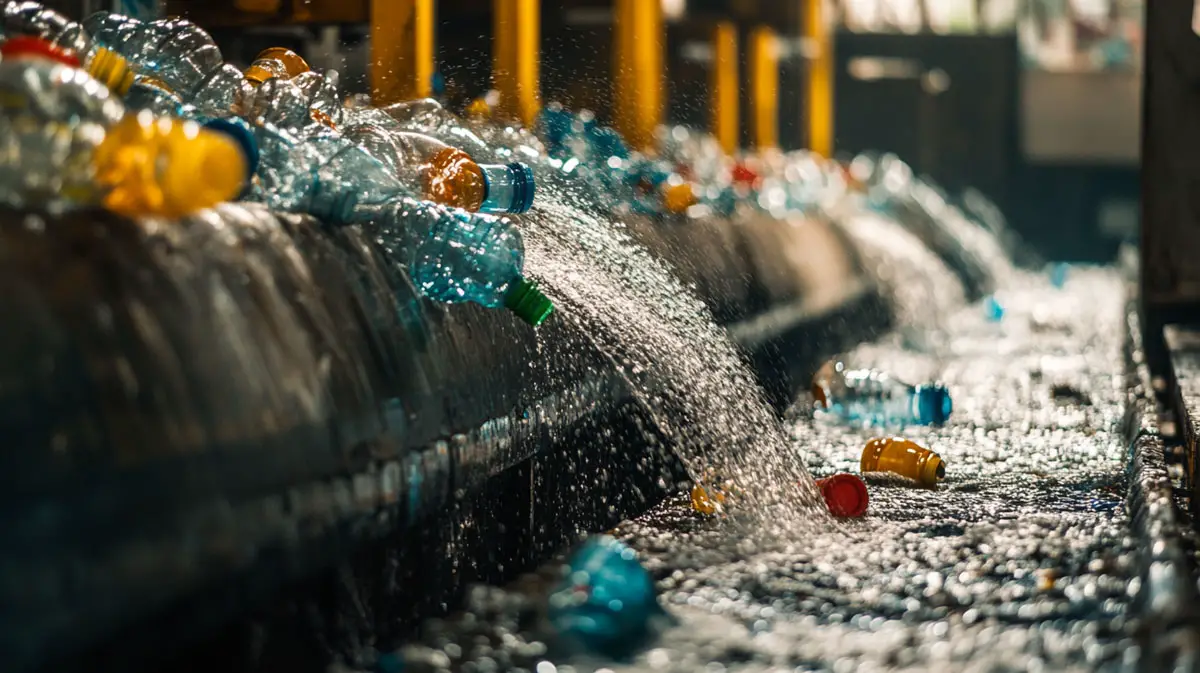What Is PCW Plastic, and Why Should Your Business Care?

Is your business struggling with rising plastic costs and environmental regulations? Post-Consumer Waste (PCW) plastic offers a practical solution. As the UK government tightens rules on plastic use and customers demand greener options, PCW plastic can help you cut costs and meet these new requirements.
You’ve likely heard about recycled plastics, but PCW plastic is different. It’s made entirely from plastics that consumers have already used and thrown away. In this guide, you’ll learn exactly what PCW plastic is, how it works in real business settings, and why switching to it makes financial sense for your company.
What is PCW plastic?
Post-Consumer Waste (PCW) plastic represents a crucial step in the evolution of recycling and waste management. To fully grasp its significance, we should first understand the journey of plastic through the consumption cycle.
When we talk about PCW plastic, we’re specifically referring to materials that have completed what we might call their “first life” – they’ve been manufactured, purchased, used by consumers, and then disposed of through recycling channels. Think of a plastic water bottle that you might drink from and place in your recycling bin. This is fundamentally different from pre-consumer recycled plastic, which never reaches the end user before being recycled.
The transformation process of PCW plastic is quite fascinating. After collection, these materials go through several critical stages:
First comes sorting, where different types of plastics are separated based on their resin identification codes (those numbers inside the recycling symbol). This is crucial because different types of plastic have different melting points and chemical properties.
Next is the cleaning phase, where contaminants like labels, dirt, and residual contents are removed. This step is particularly important for PCW plastic because consumer-used materials typically contain more impurities than pre-consumer waste.
The cleaned plastic then goes through grinding or shredding to create small, uniform pieces. These pieces are melted down and processed into pellets, which become the raw material for new products.
What makes PCW plastic particularly valuable from an environmental perspective is its role in closing the loop of plastic consumption. Every pound of PCW plastic used is a pound of virgin plastic that doesn’t need to be produced, and a pound of waste that doesn’t end up in our oceans or landfills. This creates what economists call a “double dividend” — reducing both resource extraction and waste accumulation.
The applications of PCW plastic are quite diverse. In packaging, it’s used to make everything from new bottles to protective films. In construction, it appears in materials like composite lumber and insulation. Even in textiles, PCW plastic finds new life as recycled polyester fibres in clothing and furniture.
However, it’s important to understand the challenges associated with PCW plastic. The quality of the recycled material can vary depending on the cleanliness of the waste stream and the number of times the plastic has been recycled. Each recycling cycle typically degrades the plastic’s properties somewhat, a process known as downcycling. This is why many products use a blend of raw and recycled plastics to maintain desired performance characteristics.
Why should your business care about PCW plastic?
The financial implications of PCW plastic adoption extend far beyond simple tax avoidance. While the UK’s Plastic Packaging Tax creates an immediate incentive by charging £217.85 per metric tonne for packaging with less than 30% recycled content, the economic advantages run much deeper. As global regulations around virgin plastic use become stricter, businesses that have already transitioned to PCW plastic gain a competitive advantage. They’re essentially future-proofing their operations against anticipated regulatory changes and potential price volatility in virgin plastic markets.
When we examine successful companies that have used PCW plastic, we see that sustainability initiatives often catalyse broader operational improvements. For instance, analysing material flows to incorporate PCW plastic frequently leads businesses to discover other efficiency opportunities in their production processes. This creates a multiplier effect where environmental benefits translate into operational advantages.
The ESG (Environmental, Social, and Governance) implications are particularly significant in today’s business landscape. Investment firms increasingly use ESG metrics to evaluate companies, and PCW plastic adoption can positively impact these scores. This matters because better ESG ratings often correlate with lower borrowing costs and increased access to capital. Furthermore, strong ESG performance can help buffer companies against market volatility, as environmentally conscious investments have shown greater resilience during economic downturns.
The brand image benefits of PCW plastic usage are deeply rooted in consumer psychology. Modern consumers don’t just want environmentally friendly products; they want to understand the specific actions companies are taking to reduce their environmental impact. PCW plastic provides a tangible, easily communicable example of sustainable practices. This transparency builds what marketers call “brand authenticity” – the perception that a company’s actions align with its stated values.
Real-world example: how polythene UK helps businesses benefit from PCW plastic
Polythene UK offers practical solutions for businesses looking to integrate Post-Consumer Waste (PCW) plastic into their operations. One of their key initiatives is a free mobile waste polythene collection service. This service collects used polythene directly from businesses, which is then recycled into new products like PolyPCW™.
A unique feature of their service is the mobile van equipped with a polythene baler and compactor. This setup allows businesses to recycle waste polythene without the need to invest in their own compactors. For context, purchasing a polythene compactor can cost around £3,000, not including ongoing maintenance expenses. By using Polythene UK’s collection service, businesses can avoid these upfront and operational costs while simplifying their recycling process.
This approach has been particularly useful for businesses in sectors like retail and logistics, where large volumes of polythene waste are common. It helps them manage waste efficiently, reduce costs, and meet recycling requirements without added hassle.










